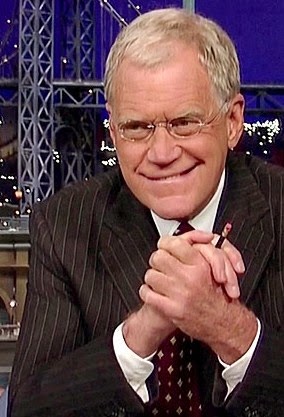 There has been a big, fat WTF!? in the press at the announcement Thursday that 27 CTV personalities will be among those involved in various torch relays leading up to the 2010 Olympic Winter Games in B.C. William Houston, the distinguished ex-Globe and Mail sports writer–who, for those who miss his column, has just launched his own “Truth and Rumours” blog–ripped into CTV yesterday, saying the whole inside job was a media embarrassment.
There has been a big, fat WTF!? in the press at the announcement Thursday that 27 CTV personalities will be among those involved in various torch relays leading up to the 2010 Olympic Winter Games in B.C. William Houston, the distinguished ex-Globe and Mail sports writer–who, for those who miss his column, has just launched his own “Truth and Rumours” blog–ripped into CTV yesterday, saying the whole inside job was a media embarrassment.
It’s not passing the sniff test at other outlets, too. You`ve got news anchors like Sandi Rinaldo, Ken Shaw, Christine Bentley and Lisa LaFlamme taking turns with the torch run (although, hey, with a name like LaFlamme, well, that’s marketing gold). So it is a bit queasy for some of us who are old enough to remember journalistic standards to witness colleagues acting as cheerleaders at the same time that they are also supposed to be covering a story.
Houston saves special contempt at the prospect of Brian Williams and his former Globe colleague Stephen Brunt taking part in any of this. At this point, I think you have to grandfather Williams in; he`s covered, what, 10 Olympic Games over a long and distinguished career. God bless him if he wants to run anywhere carrying anything.
Plus–alert the media. This isn’t the first time somebody saw this as a giant marketing opportunity (see above photo).
Call me a cynical old bastard, but should anybody really be surprised after the CTV-Rogers consortium paid a record $90 million U.S. for the rights to carry the B.C. Games that, at some point, eTalk pom-pom wavers Ben Mulroney and Tanya Kim would wind up in a cozy Hudson Bay track suit jogging along with a lit stick? Part of what you are paying for these days is the right to stage your own series of 400 meter photo ops–even if the Vancouver torch does look like a giant, lit joint. The real scandal here is how the current network vs. cable bailout campaigns–with viewers being bombarded every eight minutes by those phony man-in-the-street ads–has little to do with broken business models or changing economic times and a lot to do with these Olympic Games.
The real scandal here is how the current network vs. cable bailout campaigns–with viewers being bombarded every eight minutes by those phony man-in-the-street ads–has little to do with broken business models or changing economic times and a lot to do with these Olympic Games.
It’s no secret that CTV paid crazy money to win Vancouver, a market where rival Global has a huge head start. In all, CTV-Rogers bid $153 Million U.S. when you include the rights to 2012.
It was, some estimate, about $50 million more than CBC was prepared to bid at the time. It was the first time the amount paid to carry a Winter games exceeded the amount paid to cover a Summer Games. It was almost $150 million more than what CTV paid to carry the last Olympic Winter games in Canada, Calgary’s 1988 snowfest (which cost $4.5 million). It was more than three times the $28 million CBC paid to carry the most recent Winter Olympic Games in Turin.
These Games were awarded in Feb. of 2005. That was back before the world economy collapsed and people started to try and give television licenses away. Back then acquiring TV stations and networks was almost an Olympic event, with Global and CTV battling it out like Boitano and Orser.
Times have changed. The companies that used to race to the finish line to sponsor Olympic TV–mainly car companies and banks–were lining up for bailouts. CTV and Rogers grand plan to charge the highest ad rates in Olympic history ran smack into a stiff recession.
So forget any woo-haw about Lisa LaFlamme or Ken Shaw getting face time with a torch on your Evening newscast. Big deal, let the kids have their photo jog. Last time I checked, the torch relay is not a competitive Olympic event.
The wonder is that CTV hasn’t already set up a site where you can sponsor Shaw and LaFlamme to run their way out of the recession. Puts new meaning in the phrase “Goin’ for the Gold.”
So next time you see one of those weird “Save Local TV” ads–the ones that look like some sort of especially unfunny Just Four Laughs Gags skit–ask yourself how many stations CTV would be trying to dump today if they hadn’t overspent, not just on a lusty, decade-long binge on American programming, but on the rights to these Games. Would all those people still have jobs in Brandon if CBC had won the Games?
Curious, too, how CTV and Rogers can be in bed together for the Olympics and, at the same time, ripping each other over this fee for carriage snowjob, a.k.a. the CRTC Special Olympics of Lobbying (CRTC SOL for short).
The other curious variable in all this is the introduction this September of the new Portable People Meter data from BBM Canada, which, hey, lookit this, shows live sporting events going through the roof ratings-wise. Good timing, huh? Go Canada.

Next Post






4 Comments
“So it is a bit queasy for some of us who are old enough to remember journalistic standards to witness colleagues acting as cheerleaders at the same time that they are also supposed to be covering a story..”
Right, Mr. Brioux, because baby boomers have a monopoly on standards.
The Olympics are a big corporate billboard, might as well be honest.
Boomers don’t have a monopoly on standards or ethics, point taken. But there is a different standard today and it is a generational thing. A lot of the older, established print critics on pres tour, for example, were inspired to get into journalism by Watergate and tended to hold people’s feet to the flame more, to be more adversarial. They understood that this was part of their job. There is far more pressure today to be part of the marketing message and not get in the way of commerce. I see it when I lecture at colleges. Lines have been blurred, it’s not so black and white anymore, and I recognize that perspective in Houston’s take on the CTV torch-a-palooza.
But, yeah, the Olympics are a big corporate billboard.
(Puts tongue in cheek) Well, that’s because these kids are perceptive and know there are way more jobs out there in PR than journalism right now.
(Takes tongue out) I’ll go along with saying there’s more pressure nowadays to go along with the marketing side. I can’t speak to how it was 10, 20 years ago.
Perhaps at the root here is not so much different standard as it is experience. When you’re younger you’re not so sure in what you’re saying, plus you’re more insecure about making people mad.
Also, when they expect people to churn out minimum 2 stories per day and file updates for the web, Twitter, blog and do video, they’re going to get press-release-rewrite reporting.
With respect to the torch thing, the real scandal, as Brunt pointed out on Prime Time Sports Monday, is that these spots were sold off to the rights holder as a kind of contra agreement. Like a friend of mine says, he’s not sure who’s putting on the Olympics, CTV or the nation of Canada.
Thanks for the reply, Bill. This is a great blog.
How To Make money with affiliate programs Today. Affiliate marketing is the easier and probably the most effective method to make money from the internet. It is basically, a kind of selling technique where potential buyers from your website are directed to the websites of sellers. For every click, the website owner gets a small commission.
http://www.onlineuniversalwork.com